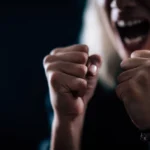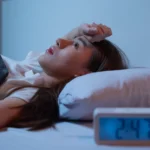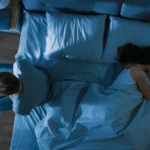The Role of Mental Health Professionals in Diagnosis and Treatment
Mental health professionals, including mental health professional, play a pivotal role in the diagnosis and treatment of depressive disorders. They use the Diagnostic and Statistical Manual of Mental Disorders (DSM-5) to classify and diagnose various depressive disorders, ensuring each condition is properly identified and treated. This diagnosis is often made by a diverse team of healthcare professionals, such as:
- Primary care physicians
- Psychiatrists
- Nurses
- Therapists
- Social workers
- Case managers
These professionals collaborate to provide the most effective treatment for Major Depressive Disorder.
Collaborative care models, which involve a team of healthcare professionals working together to provide patient-centered care, have been proven to produce superior outcomes in managing Major Depressive Disorder compared with usual care practices. Such an approach ensures that all aspects of a patient’s condition, including any comorbid conditions, are addressed, ultimately leading to a more comprehensive and effective treatment plan.
From Initial Consultation to Diagnosis
The process of diagnosing Major Depressive Disorder begins with an initial consultation, which may involve the use of questionnaires such as the PHQ-9, a valuable tool for the early diagnosis of major depressive disorder. Mental health specialists may also use other questionnaires that assess the impact of depressive symptoms on a patient’s daily life. The results of these questionnaires, along with a thorough clinical history and mental status examination, are used to make a diagnosis.
The clinical interview for MDD diagnosis includes a comprehensive review of the patient’s:
- Medical history
- Family history
- Social history
- Substance use history
- Symptomatology
It is important to explore the patient’s family history of depression or anxiety disorders, as this can help determine possible hereditary patterns and inform treatment strategies.
If depressive symptoms cannot be attributed to an underlying medical condition, a psychological evaluation is performed to further diagnose the patient. This involves various techniques, including interviews and psychological testing, to understand the person’s symptoms, thoughts, feelings, and behavior patterns.
Personalized Treatment Plans
Once a diagnosis of depression has been made, specialists discuss the most appropriate treatment options with the patient, tailored to the patient’s specific needs and circumstances. Treatment for Major Depressive Disorder often involves a multi-pronged approach including psychotherapy, medication, and brain stimulation therapies. A combination of antidepressant medication and psychotherapy is often suggested as the initial treatment for major depression, which is more effective than either treatment alone.
Healthcare professionals recognize that depression and Major Depressive Disorder are unique conditions, each with its unique aspects. This recognition necessitates customized treatment strategies for each condition. Whether it’s a specific type of therapy or a particular class of medication, the goal is to find the most effective and sustainable option for each individual patient.
Treatment Options for Major Depressive Disorder
When it comes to treating Major Depressive Disorder, a variety of treatment modalities are available, including pharmacological methods, psychotherapeutic techniques, interventional strategies, and lifestyle modifications. One common pharmacological treatment includes medications such as Selective Serotonin Reuptake Inhibitors (SSRIs), Serotonin-Norepinephrine Reuptake Inhibitors (SNRIs), atypical antidepressants, tricyclic antidepressants, and Monoamine Oxidase Inhibitors (MAOIs).
Psychotherapy is also a commonly employed method in the treatment of MDD, with psychological counseling often being used in conjunction with medication. In severe cases of major depression, electroconvulsive therapy has been found to be more effective than other treatments. While MDD does not have a cure, healthcare professionals can often improve a person’s symptoms and reduce the impact on their daily lives through treatment.
Pharmacotherapy: Antidepressant Medications and Beyond
Pharmacotherapy plays a central role in the management of MDD. Selective Serotonin Reuptake Inhibitors (SSRIs) are often the first line of treatment due to their balance of efficacy and tolerability. These medications work by increasing the level of serotonin, a neurotransmitter associated with mood, in the brain.
However, not all patients respond to SSRIs, or they may experience side effects that make it difficult to continue the medication. In such cases, other classes of medications may be considered, including:
- Serotonin-Norepinephrine Reuptake Inhibitors (SNRIs)
- Atypical antidepressants
- Tricyclic antidepressants
- Monoamine Oxidase Inhibitors (MAOIs)
The choice of medication is highly individualized and depends on the patient’s particular symptoms, overall health, the presence of any co-occurring mental or physical health conditions, and their personal response to medication.
Psychotherapy and Brain Stimulation Therapies
Alongside medication, psychotherapy, or “talk therapy,” is a key component in the treatment of MDD. Cognitive-behavioral therapy (CBT) is particularly effective for treating Major Depressive Disorder and is often a central component of many treatment plans. CBT helps patients understand their thoughts and feelings that influence behaviors. It is commonly used to treat a wide range of disorders, including:
- Phobias
- Addictions
- Anxiety
- Depression
In addition to medication and psychotherapy, brain stimulation therapies have shown effectiveness in treating Major Depressive Disorder. These include electroconvulsive therapy (ECT), repetitive transcranial magnetic stimulation (rTMS), and vagus nerve stimulation (VNS). ECT is particularly recommended for patients with severe major depression, including those with suicidal thoughts or psychosis.
Transcranial magnetic stimulation (TMS) serves as an alternative therapy option for MDD when traditional medications are not effective.
Addressing Treatment Resistant Depression
Treatment-resistant depression is a severe form of depression that does not respond to at least two full courses of different antidepressant medications. For these individuals, more advanced treatment strategies may be necessary. Brain stimulation treatments such as electroconvulsive therapy (ECT), repetitive transcranial magnetic stimulation (rTMS), and vagus nerve stimulation (VNS) are specifically designed for patients with Major Depressive Disorder who have not benefited from traditional treatments.
In some cases, experimental therapies such as deep brain stimulation (DBS) and magnetic seizure therapy (MST) are explored in clinical trials for treatment-resistant depression. Augmenting antidepressants with other drugs such as mood stabilizers or antipsychotics may also provide benefit in treatment-resistant cases. Treating treatment-resistant depression requires a comprehensive, individualized approach, possibly including:
- Lifestyle changes
- Therapy
- Support groups
- Alternative treatments
Coexisting Conditions and Their Impact on Treatment
The treatment of Major Depressive Disorder can be more challenging when other mental or physical health conditions are also present. MDD often coexists with conditions such as:
- Substance use disorders
- Panic disorder
- Social anxiety disorder
- Obsessive-compulsive disorder
These conditions commonly occur alongside MDD. These can complicate treatment and prognosis, and significantly increase the risk of suicide.
In fact, about 5 to 10 percent of patients with Major Depressive Disorder may eventually develop bipolar disorder, underlining the need for vigilant monitoring in treatment. It’s essential to understand the impact of comorbidity on depression treatment to ensure effective management of this complex condition.
Understanding Comorbidity
Comorbid conditions, or the presence of one or more additional conditions co-occurring with a primary condition, are common in individuals with MDD. These include psychiatric disorders, personality disorders, and multiple hospitalizations, which can contribute to a poorer prognosis. Patients with MDD often have comorbid conditions such as dysthymia, panic disorder, generalized anxiety disorder (GAD), obsessive-compulsive disorder (OCD), and psychotic disorders.
Higher rates of OCD, psychotic disorder, and past panic disorder are observed in patients with active MDD compared to those with past MDD.
The coexistence of GAD in patients with MDD is linked to additional clinical concerns, warranting more comprehensive treatment strategies.
Tailoring Treatment to Complex Cases
Patients with Major Depressive Disorder often present with comorbid conditions, which make treatment more challenging. These conditions typically lead to an earlier age of MDD onset and a higher risk of suicide compared to those without comorbidities. Due to these complications, patients with MDD and comorbid conditions may require tailored and complex treatment strategies.
A thorough understanding of each individual’s unique set of conditions is crucial in creating a tailored treatment plan that effectively addresses all their mental health needs.
Atlantic Behavioral Health: Compassionate Care for Depression
Atlantic Behavioral Health is recognized for offering comprehensive psychiatric and mental health services, addressing concerns from anxiety disorders to depression and bipolar disorder. The facility, situated in Massachusetts, extends its services to those in the region without the need for hospital admission. Focused on treating depression, Atlantic Behavioral Health provides a non-hospitalization approach, delivering mental health services through therapy and tailored medication management.
Atlantic Behavioral Health specializes in a compassionate and individualized approach to managing depression, emphasizing the importance of a supportive and medication-inclusive environment for patients. This approach is informed by the understanding that each patient’s journey with depression is unique, requiring personalized care that addresses their specific needs and circumstances.
Therapy Services at Atlantic Behavioral Health
Atlantic Behavioral Health provides a variety of mental health services, including psychiatric day treatment*. Their team consists of psychiatrists, psychologists, social workers, and licensed clinicians, all working together to provide the best possible care for their patients.
Through these services, Atlantic Behavioral Health aims to foster a supportive and caring environment that encourages patients to actively participate in their recovery. Their therapeutic approach is holistic, addressing not just the symptoms of depression but the underlying causes as well, to help individuals regain control of their lives and achieve long-term wellness.
Medication Management Expertise
In addition to therapy services, Atlantic Behavioral Health specializes in medication management for individuals with depression. The facility employs a patient-centered approach to select and adjust psychiatric medications, with the goal of achieving optimal treatment outcomes by fine-tuning medication regimens for each patient.
By working closely with patients, Atlantic Behavioral Health ensures that the prescribed medications are effective in managing the symptoms, while also minimizing any potential side effects. This close monitoring and adjustment of medication treatment plans are a crucial part of the care they provide, ensuring each patient receives the most effective treatment.
Preventative Measures and Coping Mechanisms
While treatment for Major Depressive Disorder is crucial, it is equally important to consider preventative measures and coping mechanisms that can help manage symptoms and prevent relapses. Some strategies to consider include:
- Regular physical activity
- Maintaining a consistent routine for eating and sleeping
- Developing a routine to provide structure and a sense of normalcy, helping to counteract depressive symptoms.
These measures can be effective in managing symptoms of depression and promoting overall mental well-being.
Practicing mindfulness and meditation has been shown to be effective in managing stress and improving mental health, which are key in preventing depression. Preventative programs that can effectively reduce depression include:
- Enhancing positive coping skills in children and adolescents
- Providing interventions for parents of children with behavioral problems
- Offering exercise programs for older persons
These programs are important in promoting mental well-being and preventing depression.
Lifestyle Modifications and Support Systems
Lifestyle modifications such as a balanced diet and regular physical activity can significantly impact mood and mental health. Making dietary changes, such as reducing the intake of processed foods and increasing consumption of fruits, vegetables, and omega-3 fatty acids, can have a positive impact on mood and may help prevent depression. Moreover, moderate exercises can help improve mild-to-moderate depression.
In addition to diet and exercise, establishing and maintaining social connections can provide emotional support and reduce feelings of isolation, which is pivotal in preventing and alleviating depressive symptoms. Connecting with others can provide a sense of belonging and make individuals feel understood and less alone in their struggle with depression.
To conclude, understanding the nuances of Major Depressive Disorder and its distinction from other forms of depression is crucial for effective diagnosis and treatment. With a range of treatment options available, from pharmacotherapy and psychotherapy to brain stimulation therapies, managing MDD effectively is possible. Facilities like Atlantic Behavioral Health play a pivotal role in providing comprehensive and compassionate care for individuals struggling with depression. Moreover, adopting preventive measures and positive coping mechanisms can help manage depressive symptoms and improve overall mental health. Always remember that mental health is as important as physical health, and seeking professional help when needed is a strength, not a weakness.
Frequently Asked Questions
What is the difference between depression and Major Depressive Disorder?
The difference between depression and Major Depressive Disorder is that depression is a broad term encompassing various mood disorders of varying severity, while Major Depressive Disorder (MDD) specifically refers to a more severe and persistent form of depression diagnosed based on specific criteria.
What are the treatment options for Major Depressive Disorder?
The treatment options for Major Depressive Disorder include antidepressant medications, psychotherapeutic techniques, and in some cases, brain stimulation therapies. Consider consulting a healthcare professional for personalized recommendations.
What is the role of mental health professionals in treating MDD?
Mental health professionals play a crucial role in diagnosing and treating MDD, often using a collaborative care model involving a team of healthcare providers to provide the most effective treatment. This ensures comprehensive and personalized care for individuals with MDD.
What services does Atlantic Behavioral Health offer for individuals with depression?
Atlantic Behavioral Health offers comprehensive psychiatric and mental health services, including therapy and medication management, to support individuals with depression.
When should one seek professional help for depression?
You should seek professional help for depression as soon as possible, especially if the symptoms cause distress or affect daily functioning.







